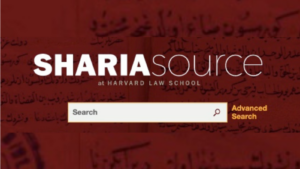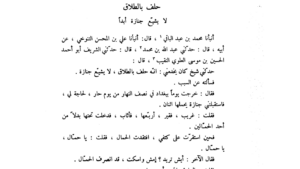
 |
Welcome back! As the start of the semester is well underway, we welcome you all and look forward to a new academic year full of research and learning! We are also excited to announce a wonderful lineup of events for this fall semester as well as introduce our 2023-2024 team of fellows and editors. Together we will continue to develop the suite of data science and AI tools for research on Islamic law as well a work on a number of forthcoming publications. First up are events! This semester, our faculty director, Professor Intisar Rabb, will be leading a Comparative Law Workshop alongside Professor William Alford and Professor Idriss Fofana, where invited legal scholars will give a series of talks that engage key questions in comparative law in Hauser 102 at Harvard Law School. We kicked off the semester with a talk featuring Justice Mansoor Shah of the Supreme Court of Pakistan, who presented “Cases and Controversies from the Pakistani Supreme Court” on Friday, September 29th. This was followed by a talk on Monday, October 2nd with Professor Rabiat Akande (Osgoode Hall Law School) who presented “Debating Diya: Indirect Rule and the Transformation of Islamic Law in British Colonial Northern Nigeria.” Coming up on Monday, October 16, 2023 from 3:45-5:45 PM US EST, Dr. Hassaan Shahawy (Reginald F. Lewis Fellow at Harvard Law School) will present “Human Authority in a Divine Law: Law-Finding vs. Law-Making in Early Islamic Jurisprudence.” The last workshop of the semester, on Monday, October 23, 2023 from 3:45-5:45 PM US EST, will feature two scholars: Professor Eric Schluessel (George Washington University) will present “Sino-Islamic Legal Encounters in Xinjiang: What We Learn From Vernacular Comparativism” followed by a presentation by Dr. Aaron Glasserman (Academy Scholar at the Harvard Academy for International and Area Studies) titled “The Shari’a-Minded Ethic in Late Qing and Republican China.”
|
 |
CONTENT: Expanded Online Companion to Text and Interpretation One aim of SHARIAsource is to provide access to primary and secondary sources of Islamic law to support research on salient issues of Islamic law and history. Accompanying his guest editor posts on the blog, Mohammed Allehbi has recently added excerpts from several primary sources to the portal including: ʿAlī al- Tanūkhī’s Nishwār al-muḥāḍara, a compilation of anecdotes that offer literary embellished stories which give insight into the realities of Islamic criminal justice; al-Musabbiḥī’s chronicle, Akhbār Miṣr, which contains a new literary genre for Islamic criminal justice: criminal reports; Abd al-Ḥamīd al-Kātib’s rasāʼil (letters), on the testament written for the ʿAbdallāh, the son of the last Umayyad caliph, Marwān II, which serves as one of the most pivotal legal-political treatises for early Islamic legal history; Siyāsat al-Mulūk, written by an anonymous author, which offers a detailed administration of Islamic criminal justice in the Abbasid and Buyid periods; an investiture letter from Muntajab al-Dīn al-Juwaynī’s Kitab ʿAtabat al-Kataba, which provides a clearer understanding of criminal justice in the Near East during the sixth/twelfth century, and more! Explore them today!
|
 |
CONTEXT: Legal Genres and Islamic Criminal JusticeThis summer, Mohammed Allehbi, the PIL-LC Research Fellow for the 2023–2024 academic year, joined the Islamic Law Blog as guest editor. He wrote a series of posts on the formation of Islamic criminal justice and policing in the Near East and the Mediterranean between the eighth and twelfth centuries. In his first essay, he argues that literary narrative sources provide insights into how military and administrative elites managed a complex criminal justice system in the Islamic Near East and Mediterranean during this time period, overseeing investigations, arrests, trials, and punishments. His second essay builds on this by examining the genre of political writings known as Mirrors for princes, which instruct rulers and other political authorities on practical matters of governance including the criminal judicial process. Allehbi’s third and fourth essays explore the genres of inshāʾ, or investiture diplomas for officers appointed as the ṣāḥib al-shurṭa and its Saljūq-era equivalent, the shiḥna, and nawāzil, which consisted of records of legal opinions and judgments given by jurists and magistrates, respectively. Learn more about these genres by reading his posts today!
|

